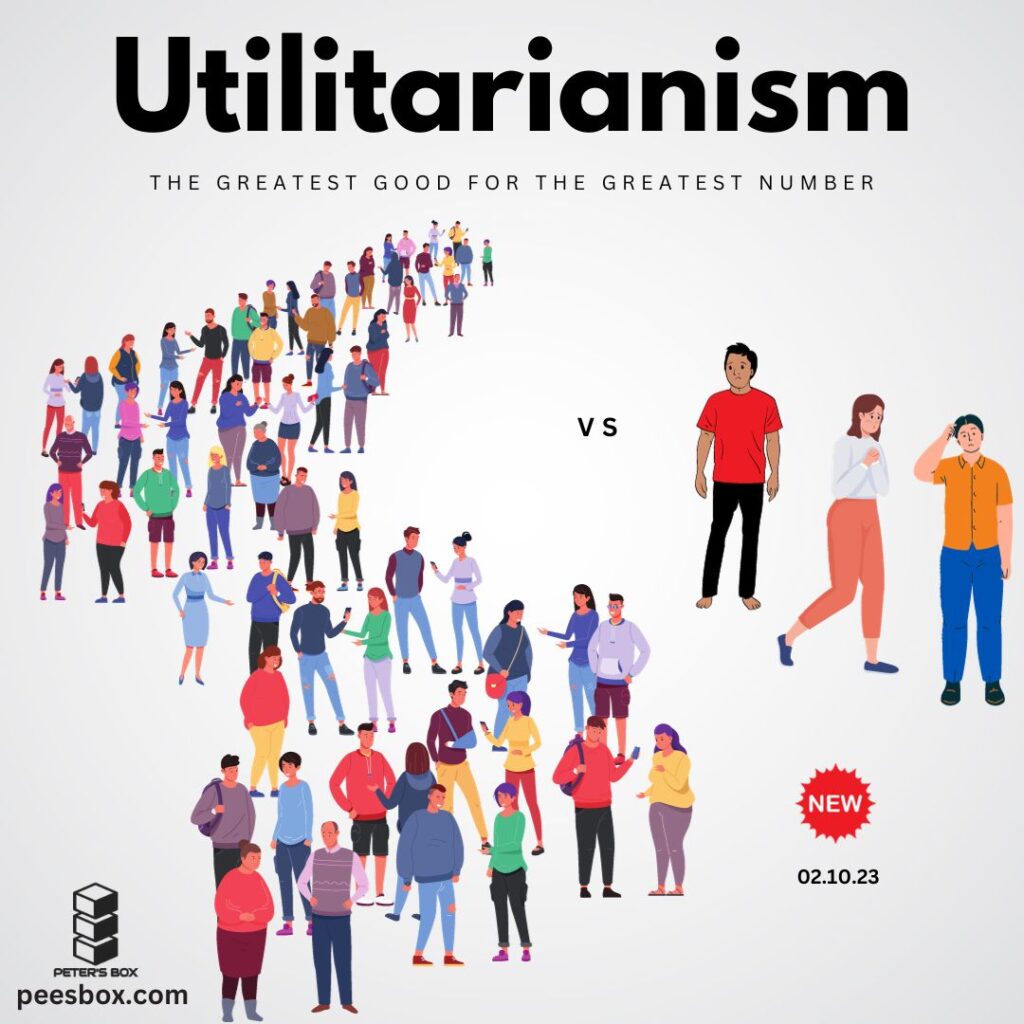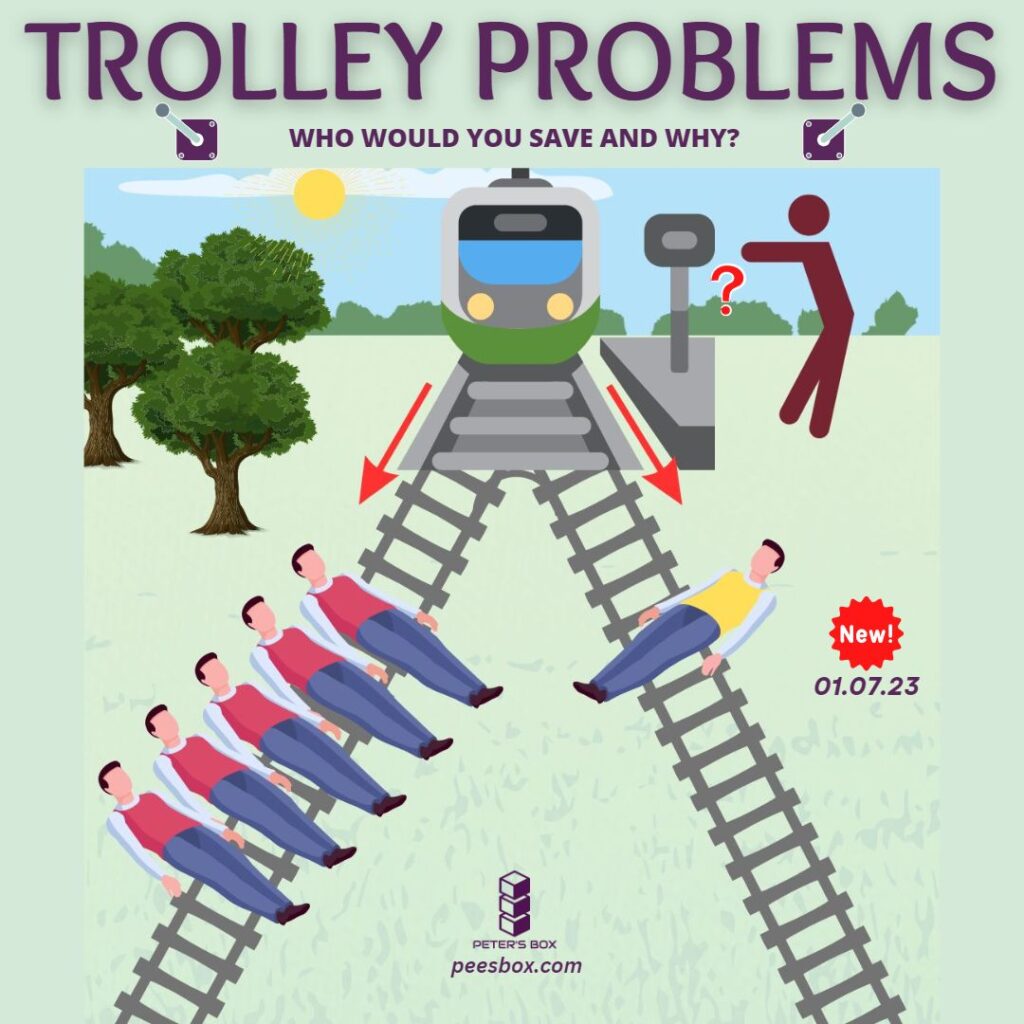Last updated on October 6th, 2023 at 06:15 am
Normative Ethics
Utilitarianism is a moral theory that belongs to a branch of ethics known as normative ethics. Normative ethics is the branch of ethics concerned with how we should conduct ourselves morally. It focuses on the norms that should be followed in a given moral situation. As such, normative ethics is prescriptive; it instructs you on how to act morally. The English philosopher and political radical Jeremy Bentham developed modern utilitarianism in the 18th century. Through the writings of John Stuart Mill, it later gained popularity.
Principle of Utility
You may be wondering if utilitarianism has anything to do with the word “utility.” Your intuition is spot on! Utilitarianism is defined by what the philosopher Jeremy Bentham refers to as “the principle of utility.” Remember that utilitarianism, as a moral theory, is prescriptive. As a result, it dictates how you should behave morally. But behaving morally is not arbitrary; it is founded on a principle, norm, or standard. The standard by which utilitarianism operates is known as the principle of utility. If you follow this principle, you are acting morally. If you do not, you have acted immorally. What is this principle of utility?
The principle of utility is that principle which approves or disapproves of every action whatsoever, according to the tendency it appears to have to augment or diminish the happiness of the party whose interest is in question.
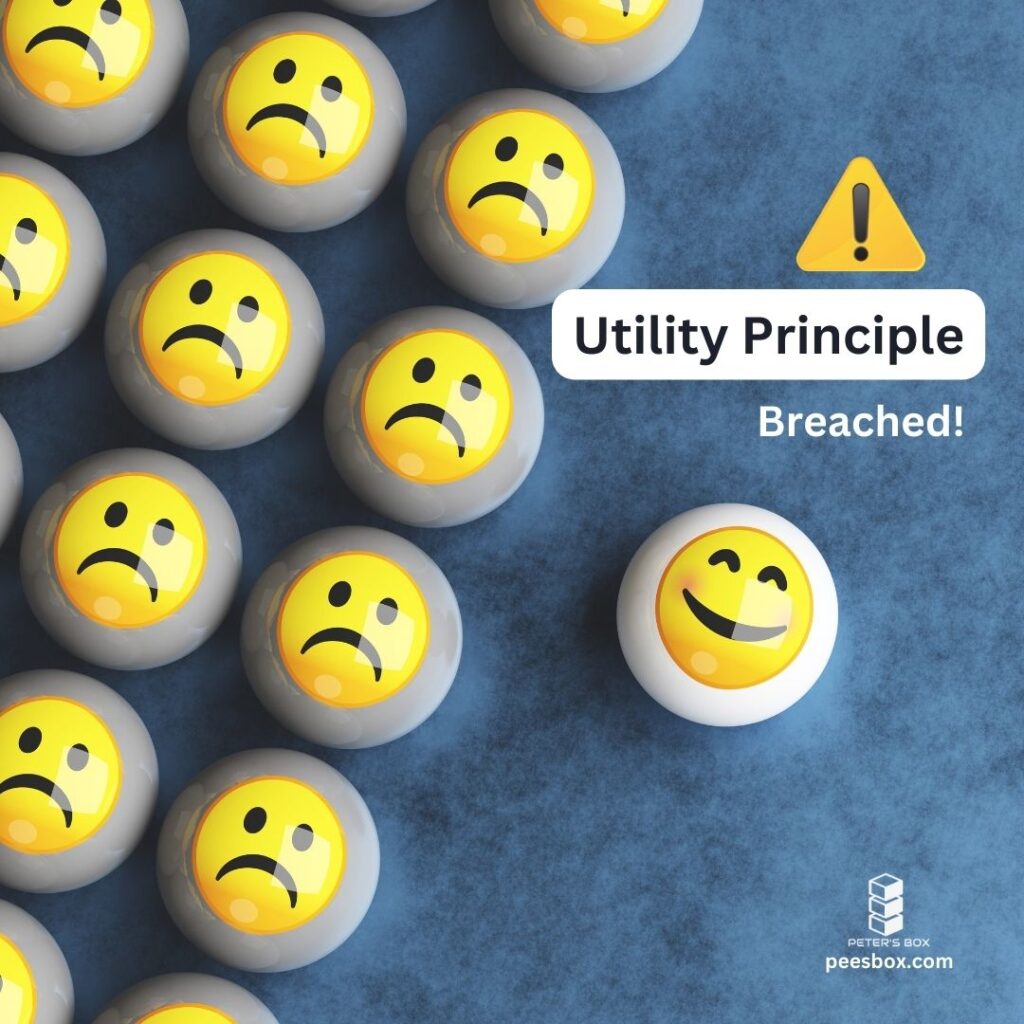
In other words, the principle of utility states that an action will be measured as moral or immoral by its ability to fulfil the happiness of a person. This principle is just like one of the many other moral principles that are used in different cultures, religions, and beliefs. A utilitarian will use the principle of utility to judge how moral an action is, much as a religious person may look to their holy book or deity to measure morality.
Let’s now define utilitarianism. I hope this is not confusing you. We have not yet defined utilitarianism as a moral theory. We merely defined the principle behind utilitarianism. And that was the principle of utility. This means that the principle of utility will certainly be found in our definition of utilitarianism.
Utilitarianism - Definition
Utilitarianism is the moral philosophy that says we must do whatever produces the most pleasure or happiness for the largest number of individuals in every scenario.
If we were to express utilitarianism in mathematical terms, it would be the moral theory that holds that the total pleasures that an action causes a group of individuals in a certain scenario must outweigh the total suffering that those persons experience in the same scenario.
Utilitarianism == total amount of happiness > total amount of pain
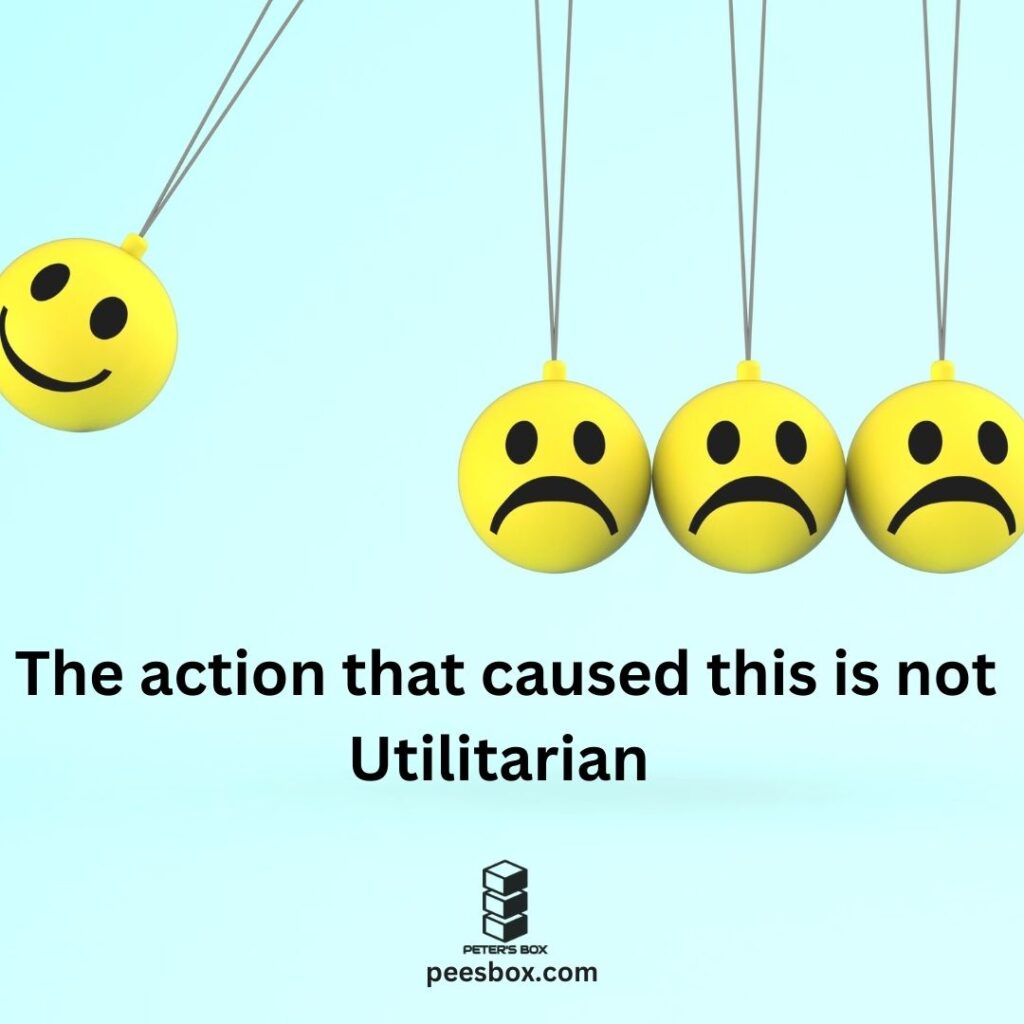
You know what? The definition appears to be overly complex. Let’s come up with a clearer, more memorable definition. That definition would be as follows:
Utilitarianism seeks the greatest pleasure or happiness for the greatest number of people.
Utilitarianism Pyramid
Utilitarianism draws on three other fundamental theories. It’s what I call the utilitarianism pyramid. You may think of them as the sub-theories that make utilitarianism work. Utilitarianism is defined by three important words: happiness or pleasure, quantity of individuals, and outcome. These three terms are explored further under the theories of hedonism, aggregation, and consequentialism, in that order.
Utilitarianism = Hedonism + Aggregation + Consequentialism
Hedonism
Hedonism is the theory that what is ultimately good for an individual is pleasure, and what is ultimately bad for an individual is pain. It is important to note that hedonism is descriptive rather than prescriptive. It responds to the question, “What is good for an individual?” How does hedonism fit into utilitarianism? Utilitarianism requires a defined objective in order to be prescriptive. This objective must be clearly defined. Pleasure, or happiness, is the explicit objective of utilitarianism. The utilitarian pyramid is built on a foundation of hedonism.
Aggregation
The next sub-theory is aggregation. Aggregation is the belief that the sum of what is good (beneficial) for each individual is greater than the sum of what is bad (harmful) for each individual. Aggregation and hedonism are obviously not the same thing since they address different issues. Hedonism is concerned with what to take note of (pleasure or pain), whereas aggregation is concerned with how benefits should be assessed (quantity). If care is neglected, one may be led to believe that aggregation is synonymous with utilitarianism. They are not the same. Aggregation deals with how to weigh benefits, whereas utilitarianism specifies how you should behave morally.
Consequentialism
Consequentialism is the final sub-theory in the utilitarian pyramid. According to the moral philosophy of consequentialism, decisions about what action is right or wrong to take should be based on the outcomes of those actions. A consequentialist will always consider the results or implications of an action before making a moral judgement. Deontology is the polar opposite of consequentialism. Deontology is an ethical philosophy that holds that no matter what the situation or outcome, you should always follow a moral principle. A deontologist argues that regardless of the results, an action is morally right or evil. As a result, just because the consequences of an action are pleasant, joyful, proper, or acceptable does not suggest that the action that created them is good.
What role does consequentialism play in utilitarianism? Consequentialism examines the outcomes, ramifications, or effects of an action. Utilitarianism asserts that in every situation, you MUST DO WHAT PRODUCES the most pleasure or happiness for the most people. Because utilitarianism considers the outcome of an action (pleasure or pain), it is a consequentialist philosophy.
Utilitarianism = Hedonism + Aggregation + Consequentialism
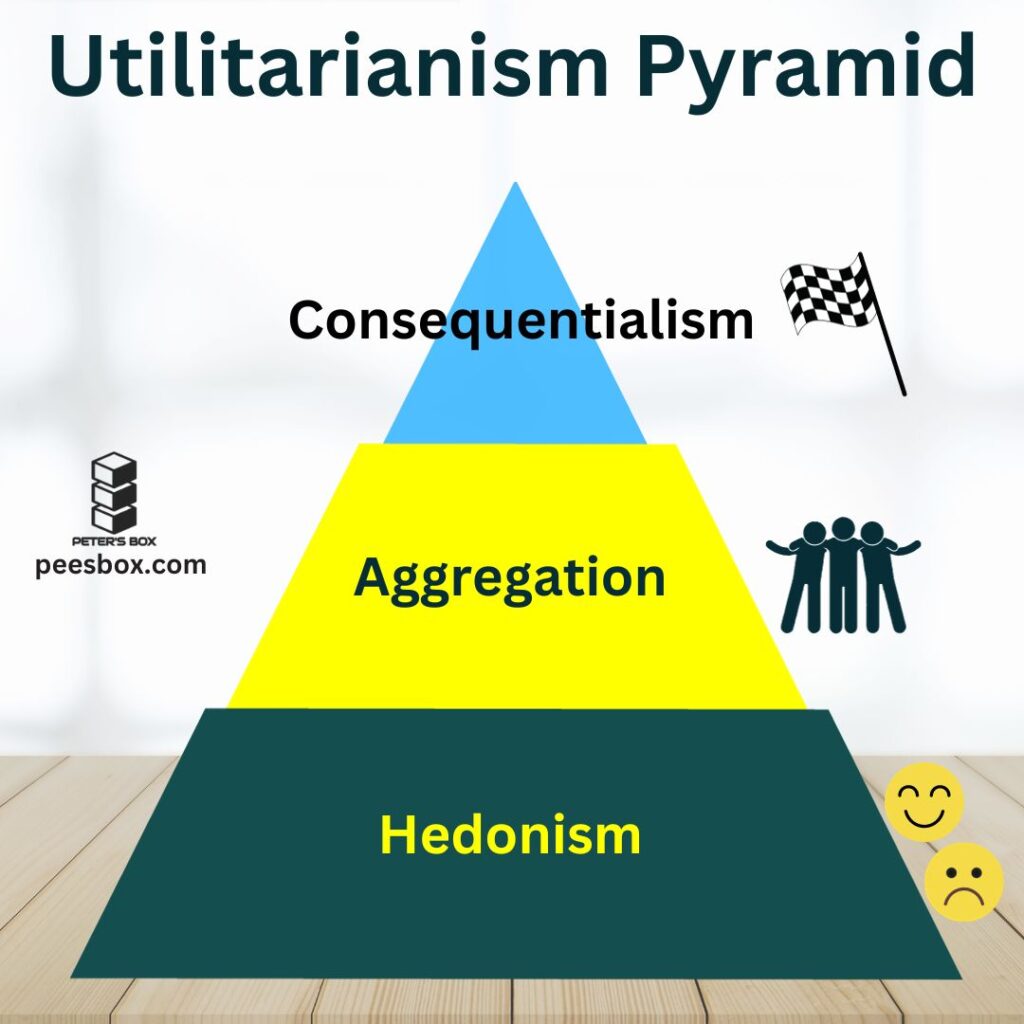
Felicific Calculus
When learning about utilitarianism for the first time, there is usually one question that people have. How can I measure pleasure if utilitarianism compels me to do whatever provides the greatest amount of pleasure or happiness for the greatest number of people in any situation? How can I determine what is pleasurable when neither a thermometer nor a weighing scale can measure pleasure?
According to Jeremy Bentham, ‘Nature has placed mankind under two sovereign masters: pain and pleasure.’ Jeremy Bentham proposed a theoretical scale called the Felicific Calculus. It is also known as the utility calculus or the hedonic calculus. This calculus (scale) was created by Bentham to determine if an action maximises pleasure and avoids pain. The elements of this scale are:
- Intensity
- Duration
- Certainty
- Propinquity
- Fecundity
- Purity
- Extent
Intensity: How strong is the pleasure caused by the action?
Duration: How long does the pleasure last?
Certainty: How likely is it that pleasure will occur?
Propinquity: How soon will the pleasure occur?
Fecundity: Will it continue to remain pleasurable?
Purity: How painless is it? Is there any indication of pain?
Extent: How many people are affected by the effects of the action?
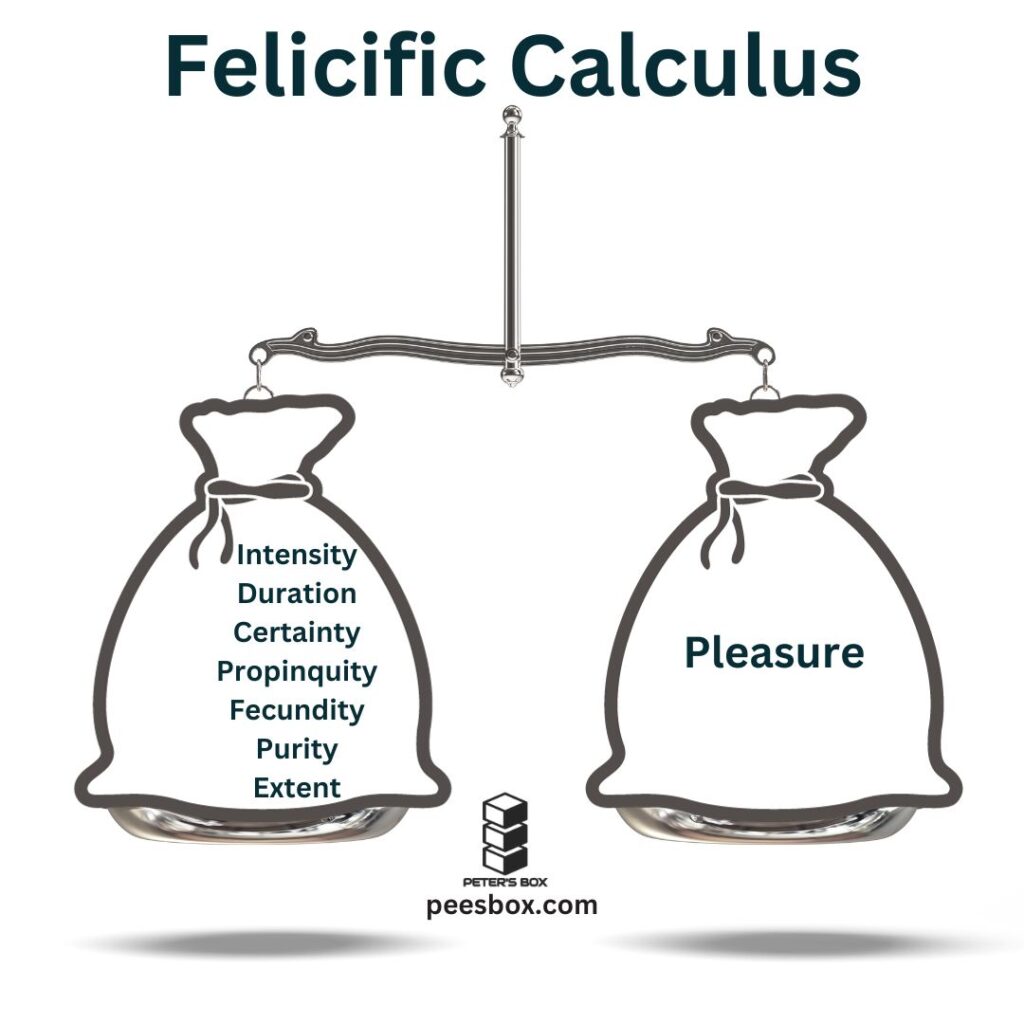
Example of Utilitarianism
So far, we haven’t looked at any practical applications of utilitarianism. What better example is there than the trolley problem? You may recall the post “Trolley Problems: Who Will You Save and Why?” Click here to view that post. Let’s see what a utilitarian would do in this trolley problem. Who will the utilitarian save? The trolley problem goes like this:
You live behind a railroad construction site. One beautiful morning, you go on a walk along the railway track, which is still under construction. On the railway, workmen are constructing two diversion lanes. While one worker fixes the left track, five workers are fixing the right track. They are very focused on their task. They are not disturbed by external noise since they are wearing earplugs. They can’t see you because they have their backs to you.
You’re miles ahead of them, whistling to yourself and watching the birds fly from tree to tree. You stop whistling as you spot a train speeding down the track in the direction of the construction workers. Unfortunately, any attempt to warn the construction workers of the approaching danger will be pointless. Their ears are sealed with earplugs. There would be no use in screaming at them. You can’t get there in time; it’s too far away.
Fortunately, right in front of you, there is a lever that controls which track is active. At the moment, the train heads for the left track, which has one construction worker. If you pull the lever, the active track is switched to the right, and the train will head on the right track, killing the five construction workers. Will you pull the lever to save one person, killing five people in the process? Or you won’t pull the lever, so one person will be killed instead of five?
The utilitarian's decision
Think about your answer. Most importantly, examine why you chose that particular response.
So, what would a utilitarian do? Will he pull the lever to save one person, diverting the train to the track where there are five people? In order to answer this question, let’s revisit the definition of utilitarianism.
Utilitarianism is the moral philosophy that says we must do whatever produces the most pleasure or happiness for the largest number of individuals in every scenario.
Nothing looks positively pleasurable in this trolley problem. The utilitarian would then consider if the total pain might be reduced. In his opinion, it is better to ease the suffering of five individuals than of just one. As a result, a utilitarian would not pull the lever. If he does, the train will be directed to the track where the five engineers are working. One person suffering would be preferable to five people suffering. A utilitarian will think along these lines. He could even conceive that five deaths would be worse for more families than it would be for one.
Is Utilitarianism the best theory?
Utilitarianism appears to be an appealing moral theory. But is this the case? Are there any drawbacks? We’ll find out in a future post.
What’s next in Peter’s Box? ¡Hasta luego amigos!


